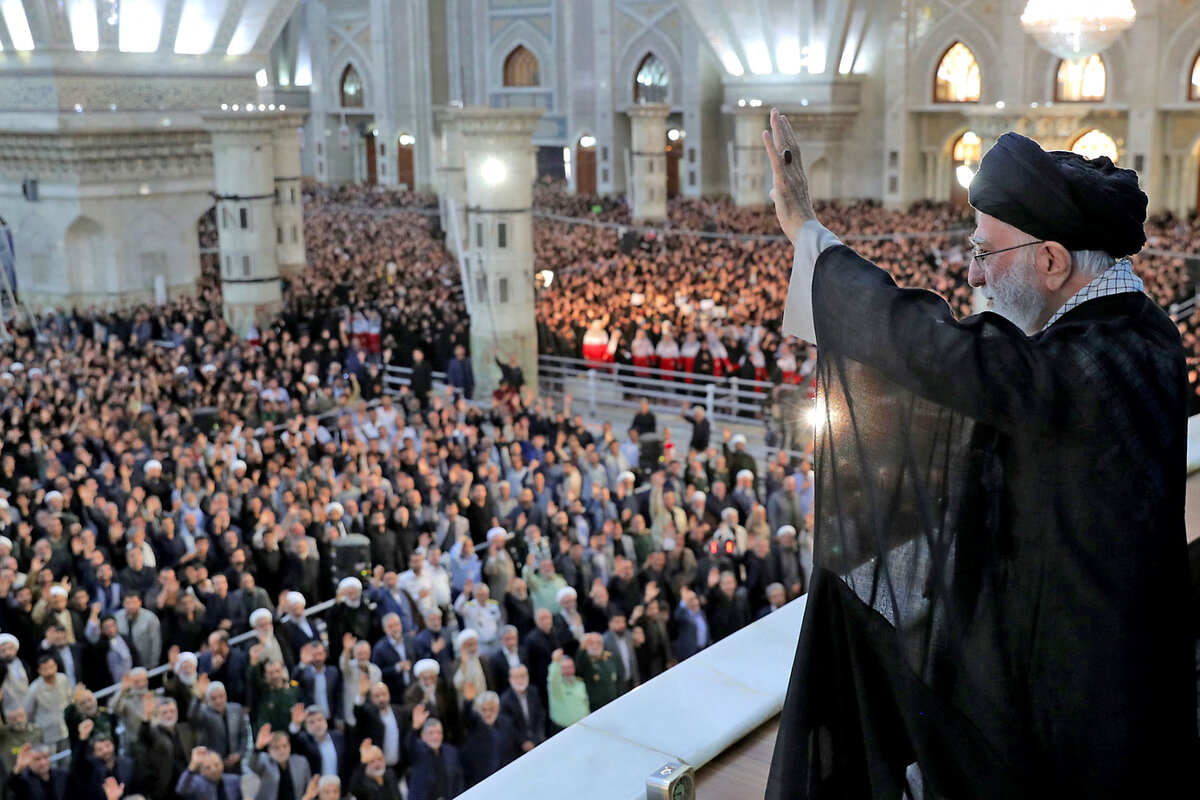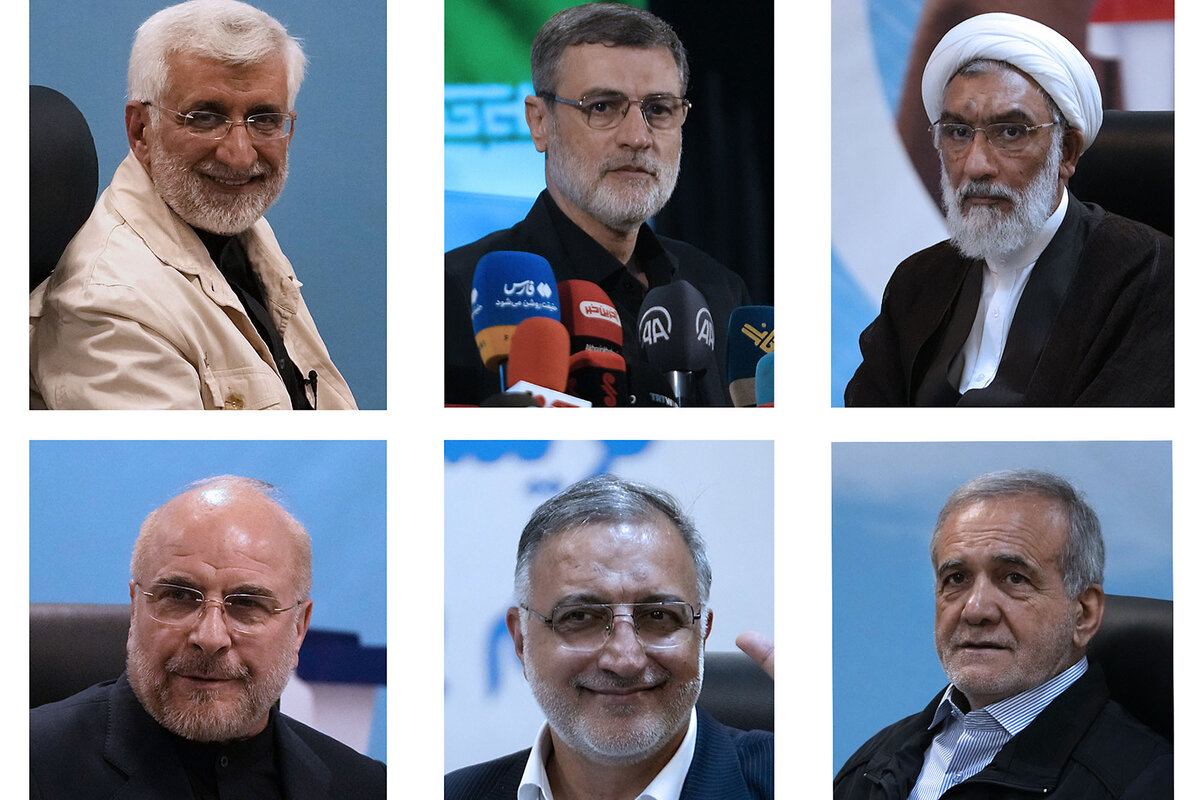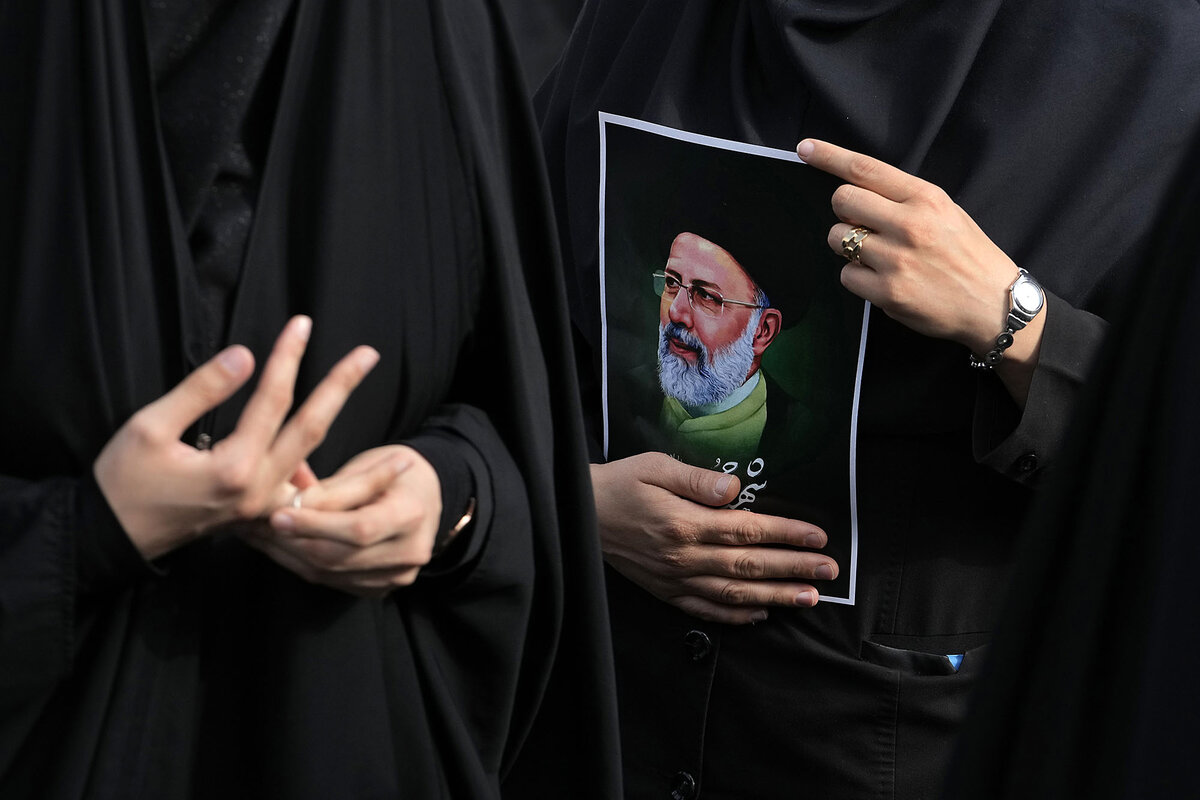Why Iranian hard-liners are allowing a reformist candidate for president
Loading...
| London
When names were announced in Iran of the half dozen candidates approved to run for president to replace Ebrahim Raisi, who was killed in a helicopter crash last month, there was little surprise about five of them.
All are high-profile and hard-line or conservative devotees of Iran’s ruling system.
But the sixth candidate, a prominent lawmaker from the reformist camp, has raised eyebrows. For three years, Iran’s reformists have systematically been shut out of elections by an opaque vetting process that has ensured hard-line control of all levers of power.
Why We Wrote This
In Iran, the revolution’s leadership sees every election as a referendum of sorts on its legitimacy. But as hard-liners have sought to solidify their control over the levers of power, political apathy has set in and voter turnout has fallen.
Analysts say the approval of Masoud Pezeshkian, a former health minister with ethnic Azeri roots and Kurdish connections, throws an unexpected wild card into the race. The straight-talking, man-of-the-people heart surgeon has limited charisma, and was the third choice of three names the reformist camp put forward as a condition for participating in the election.
Yet the inclusion of the reformist candidate may be aimed at increasing voter turnout – and therefore adding legitimacy – to an election process that is often carefully engineered, and these days rejected by many disillusioned Iranians.
The stakes in the June 28 vote are high for Ayatollah Ali Khamenei, who has enabled the hard-line takeover of Iranian politics. Iran’s supreme leader, he presided over the lethal, nationwide crackdown on anti-regime protests that erupted over the September 2022 killing of a young woman, Mahsa Amini, in police custody, allegedly for showing too much hair in public.
Consequently, this election is being held at a historic low point of regime legitimacy and amid widespread political apathy – manifested in the country's lowest-ever voter turnouts in the last two elections – despite a chronic economic crisis and questions about the stable succession of the octogenarian Mr. Khamenei.
And the Islamic Republic and its “Axis of Resistance” allies are also engaged in a heightened regional confrontation with arch-foes Israel and the United States.
Dr. Pezeshkian’s name on the ballot has sparked enthusiasm among elite reformist circles, who see a small chance – where there was none a week ago – of some change within the system, says Nasser Hadian, a political scientist retired from the University of Tehran.
No candidate from the divided conservative camp can win the 50% threshold to avoid a second-round run-off July 5, he says. But it is also far from clear if Dr. Pezeshkian can convince legions of Iranians, who have given up on the establishment and its uncompromising social strictures, to return to the ballot box.
“He’s going to generate some hope. To what extent he can sustain that hope … remains to be seen, but he has a good chance,” says Mr. Hadian, adding that he personally intends to vote this time, like many people he knows, despite skipping the three previous elections.
Dr. Pezeshkian is “well aware of his constraints,” he says. “The question is: How far can the enthusiasm which has been generated among the elite extend to society, to the average citizen?
“Domestically, [Dr. Pezeshkian] can fill the gap between the state and the people,” adds Mr. Hadian. Already conservatives “have been shaken to their bones. They think they are going to lose the privileged position that they have. … Suddenly, there is the possibility of change.”
The irony of such a result coming from the hard-line Guardian Council, the establishment body that vets candidates, was not lost on well-known filmmaker and historian Hossein Dehbashi: “Who would have thought that the reformists would be much more satisfied with the disqualifications than the principlists?" he wrote on X, using a term hard-liners call themselves.
Dr. Pezeshkian won popular plaudits just days after the death of Ms. Amini, as protests gripped the country. Speaking on state-run TV, he said the behavior of the regime more than four decades after Iran’s Islamic Revolution makes “our children … hate our religion,” despite it exercising control over all aspects of citizens’ education and life.
“We want to implement religious faith through the use of force,” he said. “This is scientifically impossible.”
Still, Dr. Pezeshkian was criticized on social media this week when he appeared openly subservient to the supreme leader. “We are not supposed to draft a new plan,” he told state-run TV in his first interview as candidate. Ayatollah Khamenei had set the “general guidelines,” and “obviously any new administration should implement the laws” within that framework.
The lone reformist will be competing against conservative stalwarts that include Mohammad Baqer Qalibaf, the parliament speaker, who has run three times for president, and Saeed Jalili, a former nuclear negotiator whose tenure from 2007 to 2013 was marked by lack of progress in nuclear talks with world powers, and who now advises the supreme leader.
“I would have been surprised if they gave the green light … to a stronger reformist,” says Hamidreza Azizi, an Iran expert at the German Institute for International and Security Affairs in Berlin. Dr. Pezeshkian, he adds, was a “safe bet” for the establishment because he is at the “conservative end of the reformist camp.”
He notes that Mr. Khamenei “has been praising what he calls Raisi’s achievements, and he calls for continuity. He wants more of the same. The only thing that remains unknown is which candidate is viewed as the best option.”
In that context, approving the “least risky” reform candidate was smart, says Dr. Azizi, “to force the reformists to come in and give legitimacy to the election. Now the reformists cannot say they are not going to be there.”
But it also signals a calculation that reformists won’t be able to rally a last-minute surge of popular support, as they have in the past.
“Society is beyond the threshold of being easily mobilized. The situation is totally different, even from two years ago,” Dr. Azizi adds. “Pezeshkian is not the person who can mobilize. Surprises are always possible, but that would be a big surprise this time.”









